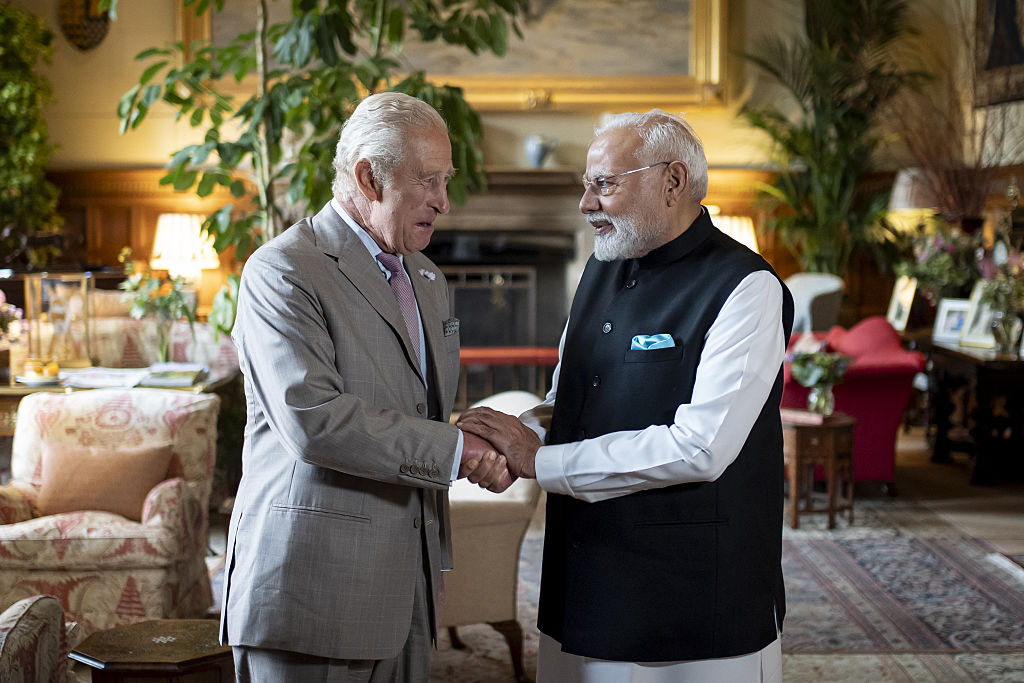
King Charles held talks with Indian Prime Minister Narendra Modi at Sandringham following the signing of a major free trade agreement between the UK and India. The deal will make UK cars and whisky cheaper to export to India, while reducing costs for Indian textiles and jewellery entering the UK.
The multi-billion-pound agreement took three years to negotiate and includes a joint UK-India plan to address illegal migration. Modi met King Charles at his Norfolk estate after signing the deal with Prime Minister Sir Keir Starmer at Chequers.
Opponents expressed concern the deal could undercut British workers due to extended social security terms, but Business Secretary Jonathan Reynolds dismissed these claims. He confirmed Indian workers temporarily seconded to the UK will receive the same treatment as in other countries.
Modi gifted King Charles a tree during his visit, aligning with an Indian environmental initiative encouraging tree planting in tribute to mothers.
Economic Impact and Political Statements
Prime Minister Sir Keir described the deal as the largest and most economically significant the UK has secured since Brexit. He stated the agreement will create over 2,200 British jobs as Indian firms expand operations in the UK and British companies find new opportunities in India.
Sir Keir emphasized the deep historic and cultural ties between the UK and India and expressed a desire to strengthen their relationship beyond trade.
Modi called the deal “a blueprint for our shared prosperity,” highlighting improved market access for Indian goods such as textiles, footwear, gems, and jewellery, and for UK products like medical devices and aerospace parts.
Tariff Reductions and Market Access
The UK government projects the deal will boost the British economy by £4.8 billion annually once fully in effect. The agreement, approved by the Indian cabinet, awaits UK parliamentary approval, expected to take at least a year.
Key tariff reductions include clothing, shoes, jewellery, and gems from India, and UK exports like gin, whisky, aerospace products, medical devices, cosmetics, lamb, salmon, chocolates, biscuits, and luxury cars.
Whisky tariffs will be cut from 150% to 75% immediately, with a planned further reduction to 40% by 2035, enhancing UK competitiveness in India.
The UK and India also agreed to strengthen cooperation in defence, education, climate action, technology, and innovation. Enhanced intelligence sharing will support tackling corruption, organised crime, and irregular migration, including a new criminal records sharing agreement to assist law enforcement.
Ongoing Negotiations and Concerns
While the deal opens markets, the UK did not secure full access to India’s financial and legal services sectors. Talks continue on a bilateral investment treaty to protect investments in both countries.
The two nations are also negotiating concerns over the UK’s proposed tax on high-carbon industries, which India fears may unfairly affect its imports.
An extended exemption on national insurance contributions was welcomed by India, allowing temporarily transferred staff to pay contributions only in their home country. This aligns with similar agreements the UK has with 17 other countries.
Conservative shadow business secretary Andrew Griffith praised the deal as a Brexit success but warned future taxation and union policies could undermine its benefits.
Liberal Democrat foreign affairs spokesperson Calum Miller argued Brexit harmed UK jobs and called for a UK-EU customs union to boost growth.
What The Author Thinks
This trade deal with India signals an important step for post-Brexit Britain to engage with a growing market. However, the true benefits depend on maintaining a regulatory environment that supports business growth and investment. Overly restrictive policies risk undermining these gains. Long-term success will require balancing trade ambitions with sound economic policy that encourages innovation and fair competition.
Featured image credit: DD News
For more stories like it, click the +Follow button at the top of this page to follow us.
